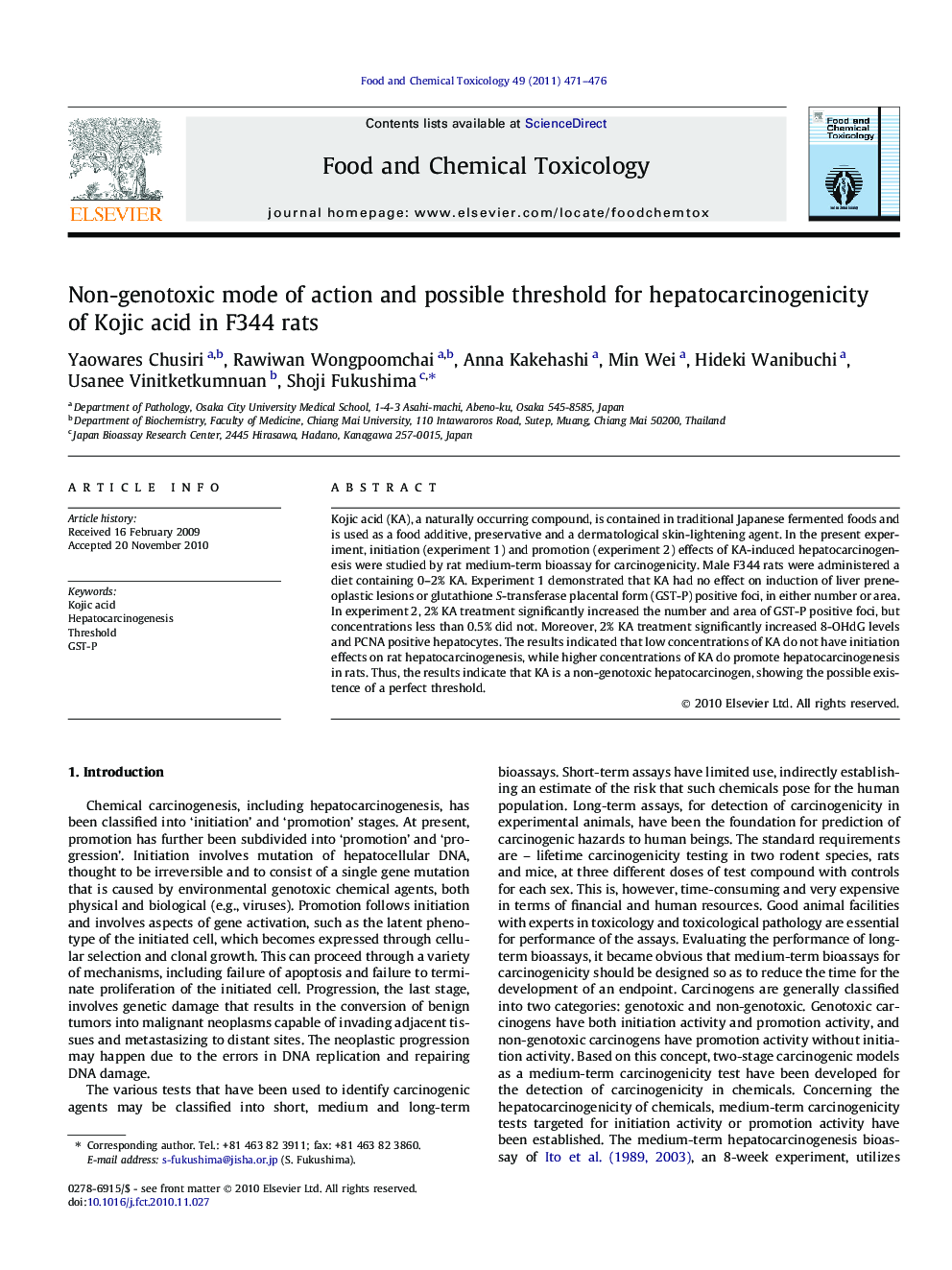| Article ID | Journal | Published Year | Pages | File Type |
|---|---|---|---|---|
| 5853827 | Food and Chemical Toxicology | 2011 | 6 Pages |
Kojic acid (KA), a naturally occurring compound, is contained in traditional Japanese fermented foods and is used as a food additive, preservative and a dermatological skin-lightening agent. In the present experiment, initiation (experiment 1) and promotion (experiment 2) effects of KA-induced hepatocarcinogenesis were studied by rat medium-term bioassay for carcinogenicity. Male F344 rats were administered a diet containing 0-2% KA. Experiment 1 demonstrated that KA had no effect on induction of liver preneoplastic lesions or glutathione S-transferase placental form (GST-P) positive foci, in either number or area. In experiment 2, 2% KA treatment significantly increased the number and area of GST-P positive foci, but concentrations less than 0.5% did not. Moreover, 2% KA treatment significantly increased 8-OHdG levels and PCNA positive hepatocytes. The results indicated that low concentrations of KA do not have initiation effects on rat hepatocarcinogenesis, while higher concentrations of KA do promote hepatocarcinogenesis in rats. Thus, the results indicate that KA is a non-genotoxic hepatocarcinogen, showing the possible existence of a perfect threshold.
